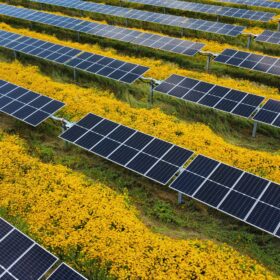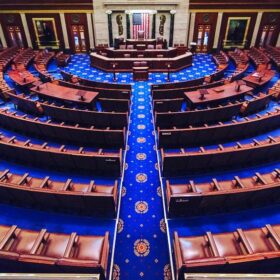Third time’s the charm?
If at first you don’t succeed, try, try, try again?
No matter what cliche you prefer, the Hawaii legislature will accept it as long as they’re able to pass a bill allowing any incentives for energy storage installations.
For the third straight year, led seemingly quixotically by Senator Lorraine Inouye, Hawaiian legislators are trying to provide electric consumers with incentives to install energy story, this time through Senate Bill 2016.
The bill, introduced Tuesday, would allow Hawaiian residents to claim an income tax credit in the year they installed the system on the following schedule:
- 30% if the system is first placed in service after June 30, 2018, and before January 1, 2020;
- 26% if the system was first placed in service after December 31, 2019, and before January 1, 2021;
- 22% if the system is first placed in service after December 31, 2020, and before January 1, 2022; and
- 10% if the system is first placed in service after December 31, 2021.
Income-tax credits are just the Hawaii legislature’s latest attempts to assist the island state in reaching its 100%-renewable-energy-by-2045 goal. The way has been rocky, as the distributed solar market was thrown off balance when the Public Utilities Commission abruptly ended net metering several years ago. Successor programs have proved so popular that at least two of them were oversubscribed soon after they were introduced.
The most active current program allows consumers to install solar arrays only if they consume all the electricity they produce and don’t export any back to the grid. This creates a de-facto storage mandate, as batteries can provide consumers somewhere to store their excess electricity while they’re waiting to use it.
Unfortunately, two previous attempts to pass incentives have failed. In 2016, Inouye introduced a bill that would have provided state-sponsored rebates for energy-storage systems. That bill made it all the way to April before being quashed.
Last year, a bill to provide consumers with state-provided loans was introduced, but it didn’t make it out of February.
SB 2016 has been introduced and has passed its first reading.
This content is protected by copyright and may not be reused. If you want to cooperate with us and would like to reuse some of our content, please contact: editors@pv-magazine.com.








By submitting this form you agree to pv magazine using your data for the purposes of publishing your comment.
Your personal data will only be disclosed or otherwise transmitted to third parties for the purposes of spam filtering or if this is necessary for technical maintenance of the website. Any other transfer to third parties will not take place unless this is justified on the basis of applicable data protection regulations or if pv magazine is legally obliged to do so.
You may revoke this consent at any time with effect for the future, in which case your personal data will be deleted immediately. Otherwise, your data will be deleted if pv magazine has processed your request or the purpose of data storage is fulfilled.
Further information on data privacy can be found in our Data Protection Policy.